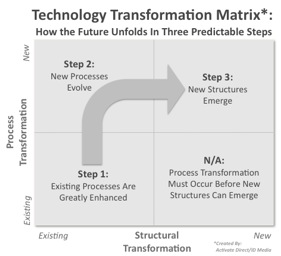The Coming Impacts of Social Media on Modern Direct Democracy
Last week our company, ActivateDirect.com, was proud to sponsor the "Technology Symposium on the Rise of Digital Direct Democracy" at the 2010 Global Forum on Modern Direct Democracy held at U.C. Hastings in San Francisco. As part of the Tech Symposium, I served on a really exciting panel of political technology experts from around the world discussing the impacts of the Internet, and particularly social media, on direct democracy.
The key question posed to the panel was: "What impact will social media have on direct democracy in the next three years and beyond?"
This is a great question because on the surface it is pretty straightforward, but under the surface it is actually quite complex.
Social media represents an entirely new mode of human interaction. It won’t just enhance the current process of direct democracy as we know it (which was built based on late 19th and early 20th century realities), it will transform it into something totally new. But this will be a gradual process, with a few bumps along the way to be sure.
Will total transformation happen in the next three years? One can never know how quickly technology-driven evolutions will occur, but it is reasonable to expect transformation of direct democracy to unfold in three steps. The three steps are illustrated in the "Technology Transformation Matrix" which our company created as a tool to plan, with our clients, around this evolutionary phenomenon:

The distribution and sale of books provide us with a great example of how the three steps could be expected to play out in direct democracy. While books may seem to have very little to do with direct democracy, I choose them because they provide a familiar example with which almost anyone can relate. Furthermore, the distribution and sale of books provides one of the most advanced examples of technology-driven transformation as we are just now witnessing the manifestation of the third step in the world of books.
Step 1: Change to existing processes in an existing structure
- Books: Physical books are sold in brick and mortar stores (the "structure"), but the Internet enhances "processes" within that structure (e.g. locate the bookstore near you, read book reviews online, etc.).
- Direct Democracy: Use Facebook to encourage your friends to request by mail, sign and mail back a physical petition to qualify an initiative.
Step 2: New processes emerging in an existing structure
- Books: Physical books are still sold in brick and mortar stores, but increasingly they are also sold online (Amazon.com) and delivered directly to the customer’s door (FedEx/UPS).
- Direct Democracy: Petitions can be downloaded online and printed/signed at home. Later, digital signatures can be used to sign a petition completely electronically. (We are just starting to see this stage emerge in 2010.)
Step 3: New processes emerging within a modified (or completely new) structure
- Books: Books can be independently, digitally published, circumventing the existing structure of agents and publishing houses. Readers download and consume books on a digital device (Kindle, iPad, etc.). Bookstores vanish*.
- Direct Democracy: Wiki-style drafting initiative text and diffuse grassroots community management of the qualification of an initiative…AND, more radical changes than we might currently expect.
It is this third step that is so compelling for us to think about. If the death of the bookstore and traditional publishing is the eventual outcome of technology’s impacts on books at the third step, then what waits for us at the third step of the direct democracy process? Please, feel free to post your thoughts as comments to this blog below.
* If the fate of bookstores is in doubt, one need think only of iTunes and that other antiquated retail outlet: the music store chain.

